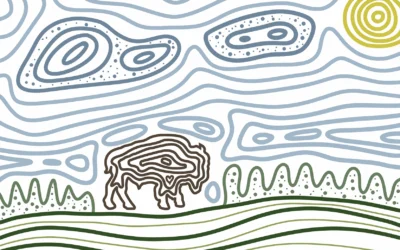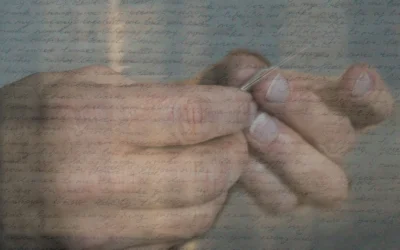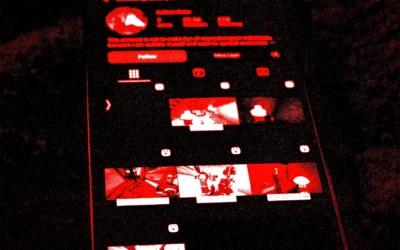Chances are, if you own any form of social media you’ve come across a handful of horoscopes in your feed. Oddly specific, sometimes humorous, and most of the time partnered with a viral photo — horoscopes are popping up online more and more.
The spiritual practice of astrology owes its popularity to the people who have worked to spread its material over a long, long time. Its history, according to historyworld.net, starts in Mesopotamia with the Babylonians at around 3000 BC, and it was later revitalized by the Greeks around 6th century BC with the mythos of Greek gods.
Horoscopes were once shared with sculptures and scripts and are now spread through the web with tweets and text posts. Whatever shape it may take, these days astrology has certainly caught the attention of a younger demographic in search of something in the stars.
Today’s current gurus of astrology are social media accounts. Astrolocherry, astrologytea, Chaninicholas, and Trashbag_astrology are few accounts you might be familiar with if you frequent Twitter, Tumblr, or Instagram. On any one of these accounts, it’s common to see a thread unfold on how the planetary movements will affect us this month or read a hyper-specific description of the signs:
“Anyone with a Scorpio sun or mercury is the type of person to make u think u know everything about them but really u know barely anything,” reads a tweet from astrologytea.
For those unfamiliar with astrology, the statement probably sounds like it’s made up by a foreign language. That’s because astrology consists of many, many intricate details that piece together very specific meanings.
It goes way beyond just one sign of the Zodiac. Natal chart astrology is associated with Western astrology and indicates exactly what position the planets were in at the time of your birth. If you’ve come across memes that describe someone with a Gemini moon, or a Mars in Virgo, they’re referring to the natal chart or birth chart astrology.
Every human on earth has their own personalized birth chart where specific placements of Zodiac signs are said to have a great impact on the way they navigate through life (astrologically speaking).
“We’re talking about something seasonal based. If you’re born at a certain time of the year, a certain time in history, everything is positioned differently,” says Catherine Potter, a practicing astrologer who has been working professionally in the field since 1986.
Potter is both a director and instructor at the Northern Star College of Mystical Studies in Edmonton where she covers topics like karma, Chakras, and, of course, astrology.
And although she agrees that there has recently been a peak in interest towards astrology with help from the Internet, she stresses that it’s important not to lose sight of the complexity of astrology that can be lost through social media.
“This is true of every field, that we have the ability to spread more information but we need to take some responsibility and check it out a little bit more,” says Potter.
Enthusiasm towards healing and spirituality has become a staple in the lives of many young adults, and astrology is one practice that more people are starting to pay attention to.
“Anyone with a scorpio sun or mercury is the type of person to make u think u know everything about them but really u know barely anything.”
— astrologytea
But Potter believes that, just like any other profession, astrology demands a great deal of knowledge and dedication from those who claim to be experts on it.
“The gift, of course, is how social media has just exploded with information. The downside of it is that people don’t stop to check credentials so anybody can say, ‘hey I’m a professional astrologer’ and they may mean that they’ve read three books,” she says.
“I don’t care how intelligent somebody is, astrology takes years to learn. If you are becoming a professional astrologer you really need to set the same guidelines if you’re becoming a psychologist or, you know, anything that is professional.”
The resurgence of interest in astrology to create relatable and viral posts on the Internet may seem like a rejuvenation of spirituality in modern life. However, the fact that reading the stars dates back thousands of years is not to say that the practice has total, if any, scientific credibility.
Ask an Astronomer is a website created by Dave Kornreich at Cornell University. The site brings anyone curious about astronomy together with scientists. Volunteers and Kornreich himself receive around 30 new questions a week, according to their website. One question that is often discussed when it comes to the correlation between astrology and science was asked: “Do astronomers believe in astrology?” The answer was a resounding no.
“There is no evidence that it works, and plenty of evidence to the contrary. There is also no mechanism by which distant planets could possibly influence personalities,” explains Kornreich.
Kornreich then goes on to suggest the questioner read Flim Flam!, a book by former magician and author James Randi that discusses occult religion and the pseudosciences.
“He’s done several experiments disproving astrology. One of the more humorous ones involves asking astrologers to cast the horoscope of a serial killer (without telling them who the person is, of course). Without fail, the astrologers never predict the psychopathic behavior. If astrology can’t tell a serial killer from a greengrocer, it can’t be good for much,” says Kornreich.
But despite the perceived evidence there is to defend astrology against the skeptics, it still continues to trend online. For most young adults, it’s important to have something stable in life between paying off loans, changing relationships, applying for jobs, and figuring out our place in the world.
Astrology allows people to find comfort in an alternative to religion that still provides purpose to the struggles we face in our day-to-day lives.
“If you actually chart the data from (the online analytic research tools) Pew and Gallup — if you plot interest in astrology against interest in religion — interest in astrology is increasing at almost the exact same rate that interest in religion is decreasing,” says Banu Guler, CEO and Co-Founder of Co-Star, a social astrology app that personalizes its horoscopes based on your natal chart with help from Artificial Intelligence.
“There’s really a lack of sort of traditional structures of finding meaning,” says Guler.
“A lot of people are like, ‘okay we need something else’ and astrology is kind of like the O.G. collective self-help, and I think is really effective in giving people tools to talk about who they are and how they relate to each other and that is fundamentally what meaning is.”
Co-Star is one resource where many young people are finding that missing meaning. Its horoscopes are hyper-specific and based on each individual user. They’re generated by an astronomical snapshot of the sky — astronomical not astrological — really just a straight-up map of what the sky looked like when you were born, explains Guler.
This snapshot is retrieved from a NASA-powered map in order to analyze how each user will be affected by the planets.
Guler also explains that Co-Star encourages its users to stay cognizant of all aspects in their natal chart. With the widespread use of astrology to make memes, it’s common for people to look at it as one sided.
“One thing that we really try hard to do over here (at Co-Star) is make sure to say, you know, you gotta read your Venus for this one if it’s about love or you gotta read your Mercury about this one if it’s about communication, and really try to push the idea that complexity is a good thing, and you should be looking at your full natal chart to really interpret these memes,” says Guler.
Astrology is a complicated network full of information and always in flux, but so is the Internet. And although there may be no evidence that astrology is truly real, its noticable uprise online provides evidence that it has been helpful for young people to navigate the world.
The translation of ancient astrological signs to current culture and media has created a unique community for millennials, and everyone else who finds belonging there.
“I think that they’re looking for connection that maybe some organized religions used to give before, but they’re looking for a bigger connection, and so astrology gives that generation a bigger connection,” says Potter.
Graphic by Thai Sirikoone.




0 Comments